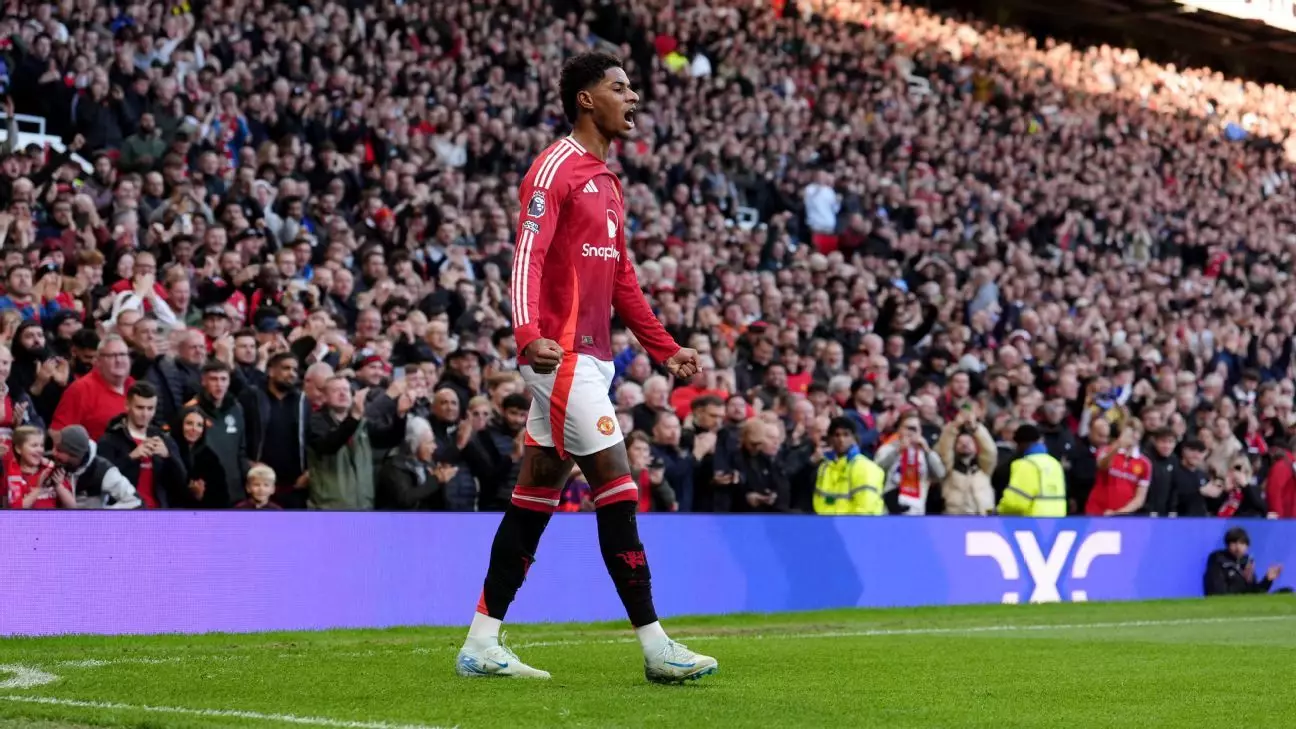The ongoing saga surrounding Marcus Rashford at Manchester United reveals a delicate balance between player performance, managerial discretion, and the intricacies of contract negotiations. Reports from ESPN indicate that head coach Ruben Amorim is not facing external pressure regarding the inclusion of the 27-year-old forward in the squad. This freedom allows Amorim to navigate the complexities of Rashford’s current form and situation without interference from the club’s higher-ups, namely co-owner Sir Jim Ratcliffe and technical director Jason Wilcox.
Rashford’s omission from the last three matches, including a disheartening 3-0 loss to Bournemouth at Old Trafford, signals a potential crisis not just for the player personally but for the club as a whole. The forward’s recent public declaration that he is “ready for a new challenge” is particularly noteworthy, suggesting that his mindset may be shifting amid a frustrating spell that has seen him dropped from not only his club’s lineup but also the England national team.
Rashford’s continued absence from the pitch has several implications for Manchester United’s strategic approach moving forward, especially with the January transfer window on the horizon. While Rashford is a high-wage player—earning over £325,000 per week and currently contracted until 2028—his diminished performance raises concerns about his market value. The absence of concrete offers for the player could further complicate matters, leaving United in a delicate position; they are reportedly willing to entertain reasonable bids, but any potential deal would need to reflect Rashford’s status as a marquee player.
Given Rashford’s fluctuating form—evidenced by a meager seven goals in 24 appearances this season and a total of just 15 goals in 67 matches since signing a lucrative contract in July—his position seems tenuous. The timing of his expressed desire for a “new challenge” shortly after being omitted from the squad raises questions: Is this a strategic maneuver to regain control of his career, or a sign of rational frustration with his circumstances at the club?
Amorim’s response to Rashford’s public comments provides a glimpse into the intricate relationships between players, coaches, and media. He emphasized that he understands the influence surrounding Rashford and acknowledges that the player is subject to external pressures that may not align with his own perspectives. “I am always here to help Marcus,” Amorim stated. This statement indicates his willingness to support the player, but it also highlights the complexities of the modern football environment, where media narratives can often overshadow performance on the pitch.
As a manager, Amorim’s focus remains on training and performance, distancing himself from the melodrama that often accompanies high-profile players. His comments reflect an understanding that the team’s collective success is paramount, yet he must also contend with the individual narratives that can pull players in different directions. The dichotomy of the player’s public declarations versus the realities of club decisions illustrates the tensions inherent in professional football.
As both Rashford and Amorim navigate this complicated period, the upcoming January transfer window looms large. For Rashford, the pressing question will be whether his form can recover in time to secure both a place in the Manchester United squad and potential interest from other clubs. Meanwhile, United must consider how their approach may need to evolve as they aim to capitalize on any opportunities for renewal, whether through player sales or new acquisitions.
Ultimately, the situation exemplifies the broader challenges faced by high-profile clubs like Manchester United, where the weight of expectations can stifle individual performances. For Rashford, evolving from one of the club’s key figures into a player fighting for his place could mark a significant turning point in his career. The outcomes of these developments will be critical, impacting not only Rashford’s future but also the strategic direction of Manchester United as they seek to reestablish themselves as a dominant force in English football.

Leave a Reply